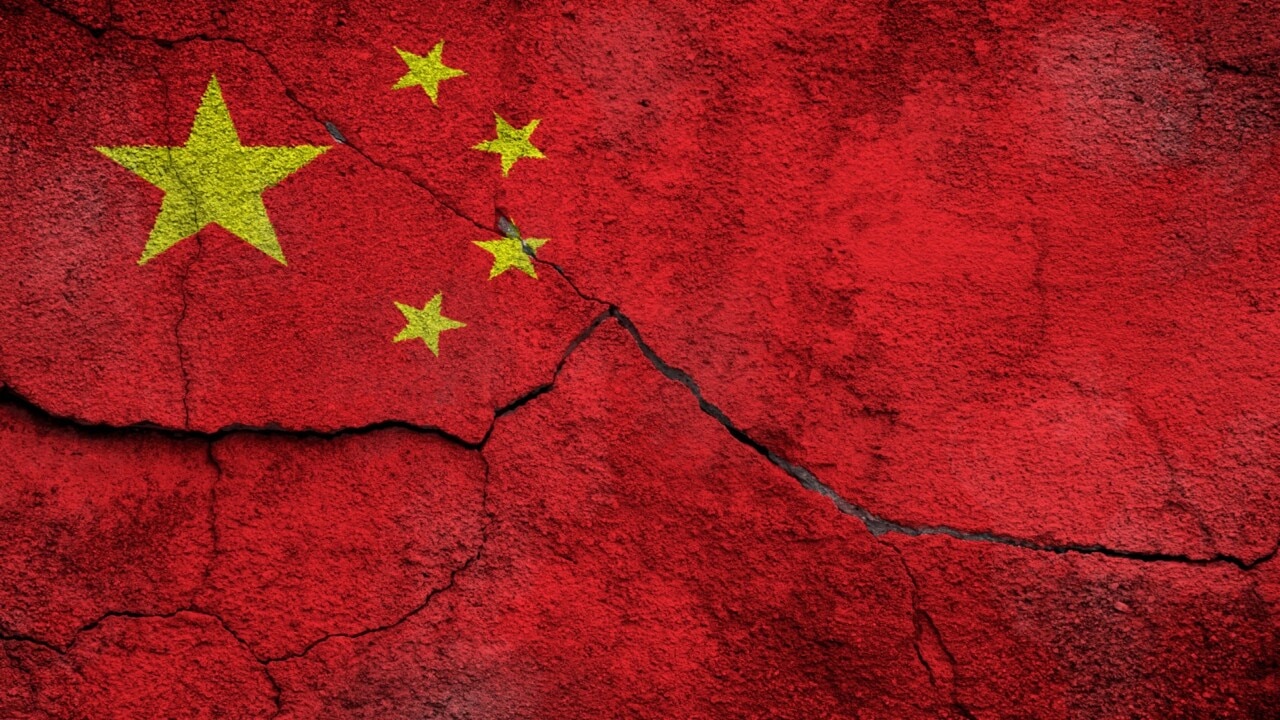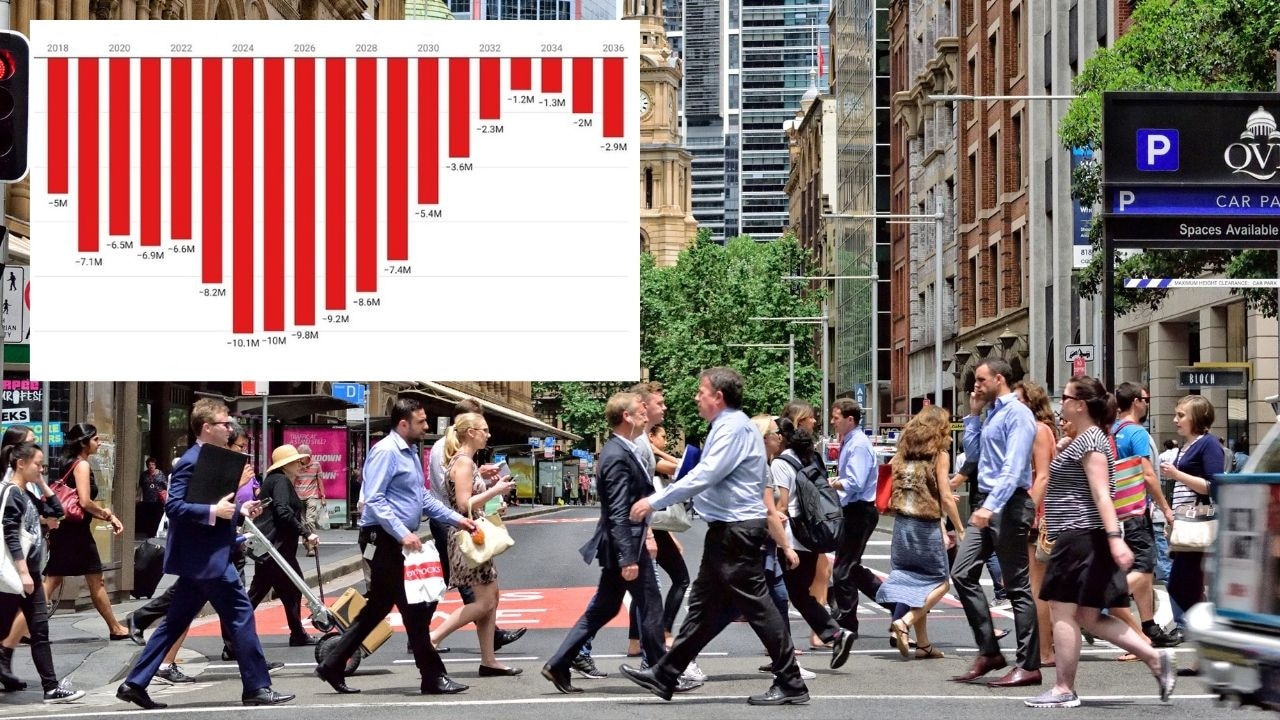‘Collapsed’: China event that should leave Australia in sheer terror
A dramatic change in China is having a profound impact on Australia already – and things looks set to get even worse.

Mining
Don't miss out on the headlines from Mining. Followed categories will be added to My News.
ANALYSIS
China’s is growing at 5 per cent. This should be good for Aussie commodities like iron ore. But it has instead crashed this year. Why?
The Chinese economy is changing, and not in a good way for commodity demand.
It used to be that Chinese growth was primarily driven by urbanisation. Moving tens of millions of people to cities each year and building them services: housing, infrastructure, business districts, and malls.
But this growth driver is over. The movement of people to cities has collapsed:
Urbanisation advocates point out that 150 million more rural Chinese will still need to shift into cities for China to match the likes of Western urbanisation, but that misses the bigger picture.
The peak movement of people is long past, and the population is shrinking. So, the number of people moving each year is falling, which is what matters for construction volumes and commodity inputs.
Secondly, just about every Aussie knows about China’s “ghost cities”. Scattered all over China, these empty metropolises are fully ready to be occupied by former rural denizens.
The problem is that nobody can afford them. A massive credit and price boom drove the apartment and infrastructure frenzies, which delivered so much construction for so long.

Now Beijing is deliberately deflating property prices to make them affordable. By doing so, it is also killing investment in more apartments. It knows the dwellings for the remaining 150 million rural denizens are already built and more!
The same goes for the local governments that borrowed against land to build infrastructure and other services.
For a commodity supplier, the downside of the Chinese construction boom is something that should be looked upon with sheer terror:
We are talking about billions upon billions of square metres of construction volumes that consume rebar and wire rods disappearing forever over the next few years.
This has all slowed Chinese growth a lot, but it is not going bust. It is shifting the economy from the urbanisation pulse of the past 20 years and investing heavily in human resources, technology and higher-value-added manufacturing instead.
This provides new steel and iron ore demand to offset the construction decline.
For instance, China’s EV boom is awesome as it seizes global leadership.

Likewise, its chip and technology sectors need new factories. And it is still building infrastructure, even if it is a losing game in terms of rate of return.
But none of this is enough to offset the enormous fall in demand for construction steel.
Pig iron output is down 7 per cent year over year in the past few months, but we’ve yet to reach the steepest of the construction cliff.
By the time we are done, the demand for construction steel will be five times lower than today.
China can keep growing GDP at rates in line with other developed markets as it transitions to new industries.
However, steel output and iron ore will be left far behind.
David Llewellyn-Smith is Chief Strategist at the MB Fund and MB Super. David is the founding publisher and editor of MacroBusiness and was the founding publisher and global economy editor of The Diplomat, the Asia Pacific’s leading geopolitics and economics portal. He is the co-author of The Great Crash of 2008 with Ross Garnaut and was the editor of the second Garnaut Climate Change Review.
Originally published as ‘Collapsed’: China event that should leave Australia in sheer terror




